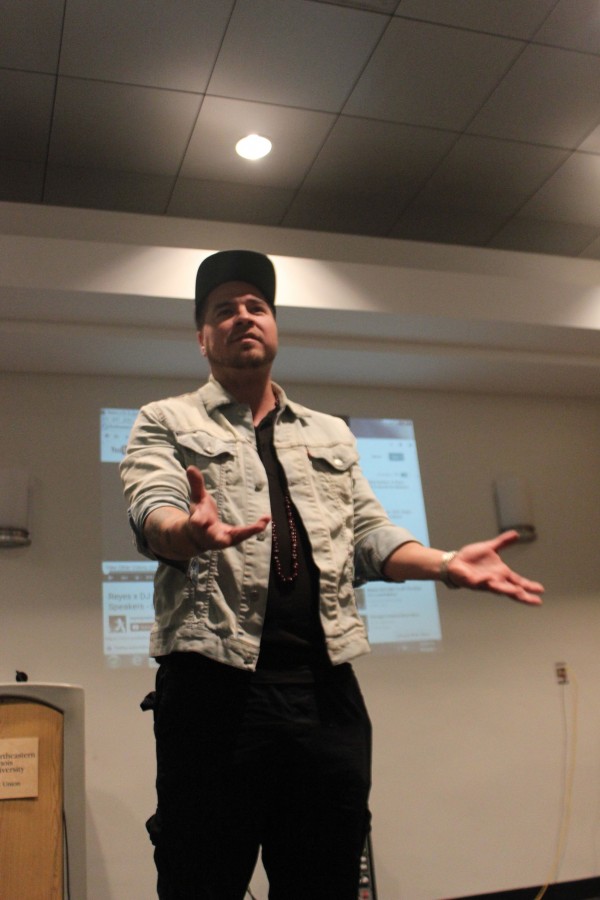The Weapon of Poetry
More stories from Hailey G. Boyle
Michael Reyes performs his poem ‘We Are.’
Shall I compare thee to a summer’s day? Poetry gets a bad rap for being romantic and passive.
“Poetry is a weapon for critical thought,” Reyes said, “It’s a tool to engage and help people listen.”
Reyes, a former NEIU student, is a poet and spoken word artist. He has performed across the world and stated that his mission is to use poetry and hip-hop to address issues of social justice and cultural identity.
Reyes and students from Dr. Pedro Albizu Campos Puerto Rican High School were brought in on Sept. 23 by the staff of Que Ondee Sola and the Union for Puerto Rican Students to commemorate El Grito De Lares, the Puerto Rican independence from Spain.
In recognition of the 147th anniversary, much of Reyes’ performance involved Puerto Rican politics, such a short film featuring his poem “Bring Him Home”. The poem was written for Oscar López Rivera, a Puerto Rican political prisoner.
Another entitled ‘Blood Dries Black,’ was about the assassination of Filiberto Ojeda Ríos, a Puerto Rican revolutionary who was shot and killed in his home during an FBI operation that was meant to arrest him. Reyes believes that the date of Ríos death was not a coincidence; September 23, 2005. He equated this symbolism to assassinating the U.S. President on the Fourth of July.
Reyes is not Puerto Rican, he is Mexican. But that does not matter to him. He is Latino and believes that one Latin American’s struggle is another’s.
“I see the humanity in it and the injustice in it,” he said.
In his poem ‘We Are,’ Reyes highlighted the complexity of being Latino in the eyes of the United States. The tiny differences that separate Cubans from Mexicans from Puerto Ricans from El Salvadorians don’t matter when so much connection is there.
Latin Americans are a huge mix of different ethnic groups. “There are so many layers,” said Reyes. They are decedents of the indigenous Aztecs and Incans, the Europeans from Spain and Portugal, there is an Arabic influence on the Spanish language, the slaves brought from Africa, the Irish and German influence.
“There’s a connection we can gain from shared struggles,” Reyes said. Even if a person is not Latino, he believes they can feel the connection and find empathy for another.
When three of the Mirabel sisters, political activists who opposed the dictator Trujillo, were assassinated on November 25, 1960, all of Latin America felt the pain of the Dominican Republic and the world now commemorates November 25 as International Day for the Elimination of Violence Against Women.
“We are everyone,” Reyes proclaimed, “We are the new American dream.”
Your donation will support the student journalists of Northeastern Illinois University's The Independent, either in writers' payment, additional supplies and other items of note. Your contribution will allow us to purchase additional equipment for writers/photographers/illustrators and cover our annual website hosting costs.




